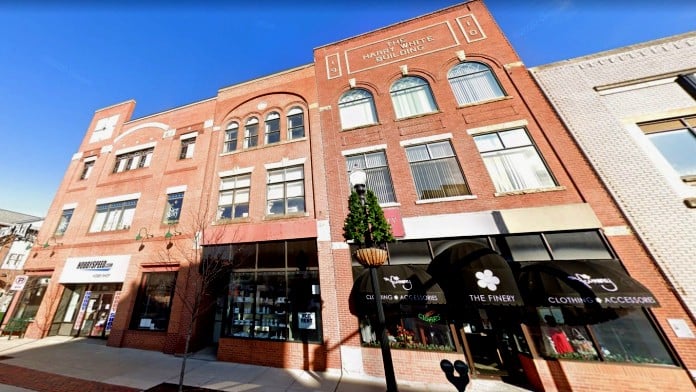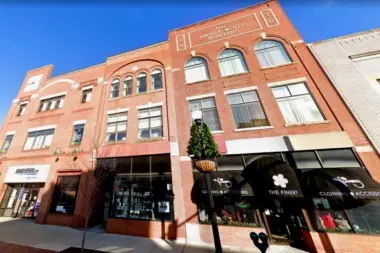This entity is an unprofessional, uncaring revenue-machine that you will not escape if charged with a crime in Indiana County, even if you are not in need of any type of treatment. Those inducted through the criminal justice system are especially vulnerable. This is someth ...
About Open Door
The Open Door of Indiana in Pennsylvania was established in 1972 as a volunteer crisis hotline. They’ve since grown into a licensed outpatient clinic offering mental health, gambling, and substance use recovery including medication assisted treatment (MAT). In-person and telehealth service options are available. They also offer crisis care and court-ordered treatment for DUI offenders alongside HIV/HCV screening, counseling and referrals.
Open Door is committed to meeting you at the point of your need at all times, whether that be immediate crisis support or guidance with substance use and mental health. They partner with community providers and host self-help meetings to provide ongoing encouragement for those who’ve walked the recovery path with them.
They don’t just foster personal growth and success but community wellbeing through healing and recovery. Open Door is located in downtown Indiana Borough, just a few blocks from Indiana University of Pennsylvania’s Oak Grove.
Crisis Care & Ongoing Recovery Support
Open Door offers 24/7 and confidential crisis support for patients facing acute psychiatric or substance use challenges like overdose. Crisis services also involve assessment, safety planning, and ongoing support. If appropriate, the crisis team may directly link you to their general or intensive outpatient program (IOP), depending on your needs.
Both programs offer therapy groups and individual sessions that are tailored to fit your schedule so treatment doesn’t interfere with your work or family responsibilities. They may prescribe FDA-approved BRIXADI, Sublocade or Suboxone via MAT. This helps manage painful withdrawal symptoms and ease physiological cravings.
Open Door also offers school-based support for youth, jail-based treatment for individuals at Indiana County Jail, and intervention services. Additional services include court-ordered CRN evaluations, education, and treatment support for DUI offenders. It’s about helping you take responsibility and begin a new chapter with purpose and hope.
Latest Reviews
Rehab Score
Gallery


Accepted Insurance
Other Forms of Payment
Medicaid is a state based program that helps lower-income individuals and families pay for healthcare. Medicaid covers addiction treatment so those enrolled can use their coverage to pay for rehab. When a program accepts Medicaid the client often pays very little or nothing out of their own pocket.
Private insurance refers to any kind of healthcare coverage that isn't from the state or federal government. This includes individual and family plans offered by an employer or purchased from the Insurance Marketplace. Every plan will have different requirements and out of pocket costs so be sure to get the full details before you start treatment.
Self-pay involves paying for treatment out of your own pocket. You can use savings or credit, get a personal loan, or receive help from family and friends to fund your treatment. If you don't have insurance or your insurance plan doesn't cover a specific program, self-pay can help ensure you still get the care you need.
Financial aid can take many forms. Centers may have grants or scholarships available to clients who meet eligibility requirements. Programs that receive SAMHSA grants may have financial aid available for those who need treatment as well. Grants and scholarships can help you pai for treatment without having to repay.
Sliding scale payments are based on a client's income and family size. The goal is to make treatment affordable to everyone. By taking these factors into account, addiction recovery care providers help ensure that your treatment does not become a financial burden to you or your family, eliminating one barrier to care.
Addiction Treatments
Levels of Care
Outpatient Programs (OP) are for those seeking mental rehab or drug rehab, but who also stay at home every night. The main difference between outpatient treatment (OP) and intensive outpatient treatment (IOP) lies in the amount of hours the patient spends at the facility. Most of the time an outpatient program is designed for someone who has completed an inpatient stay and is looking to continue their growth in recovery. Outpatient is not meant to be the starting point, it is commonly referred to as aftercare.
Drug and alcohol addiction often takes a heavy toll on one's body. Over time, a physical dependence can develop, meaning the body physiologically needs the substance to function. Detox is the process of removing drugs and/or alcohol from the body, a process that can be lethal if mismanaged. Medical detox is done by licensed medical professionals who monitor vital signs and keep you safe, healthy, and as comfortable as possible as you go through detox and withdrawal.
Intensive Outpatient Programs (IOP) are for those who want or need a very structured treatment program but who also wish to live at home and continue with certain responsibilities (such as work or school). IOP substance abuse treatment programs vary in duration and intensity, and certain outpatient rehab centers will offer individualized treatment programs.
Treatments
The goal of treatment for alcoholism is abstinence. Those with poor social support, poor motivation, or psychiatric disorders tend to relapse within a few years of treatment. For these people, success is measured by longer periods of abstinence, reduced use of alcohol, better health, and improved social functioning. Recovery and Maintenance are usually based on 12 step programs and AA meetings.
Drug rehab in Pennsylvania is devoted to the treatment of addiction. Levels of care, treatment methods, and settings differ, but the aim of each program is to end drug dependency and empower participants to achieve long-term recovery.
Many of those suffering from addiction also suffer from mental or emotional illnesses like schizophrenia, bipolar disorder, depression, or anxiety disorders. Rehab and other substance abuse facilities treating those with a dual diagnosis or co-occurring disorder administer psychiatric treatment to address the person's mental health issue in addition to drug and alcohol rehabilitation.
Opioid rehabs specialize in supporting those recovering from opioid addiction. They treat those suffering from addiction to illegal opioids like heroin, as well as prescription drugs like oxycodone. These centers typically combine both physical as well as mental and emotional support to help stop addiction. Physical support often includes medical detox and subsequent medical support (including medication), and mental support includes in-depth therapy to address the underlying causes of addiction.
Substance rehabs focus on helping individuals recover from substance abuse, including alcohol and drug addiction (both illegal and prescription drugs). They often include the opportunity to engage in both individual as well as group therapy.
Programs
Adult rehab programs include therapies tailored to each client's specific needs, goals, and recovery progress. They are tailored to the specific challenges adult clients may face, including family and work pressures and commitments. From inpatient and residential treatment to various levels of outpatient services, there are many options available. Some facilities also help adults work through co-occurring conditions, like anxiety, that can accompany addiction.
Clinical Services
Group therapy is any therapeutic work that happens in a group (not one-on-one). There are a number of different group therapy modalities, including support groups, experiential therapy, psycho-education, and more. Group therapy involves treatment as well as processing interaction between group members.
Contact Information
665 Philadelphia street
2nd Floor
Indiana, PA 15701




